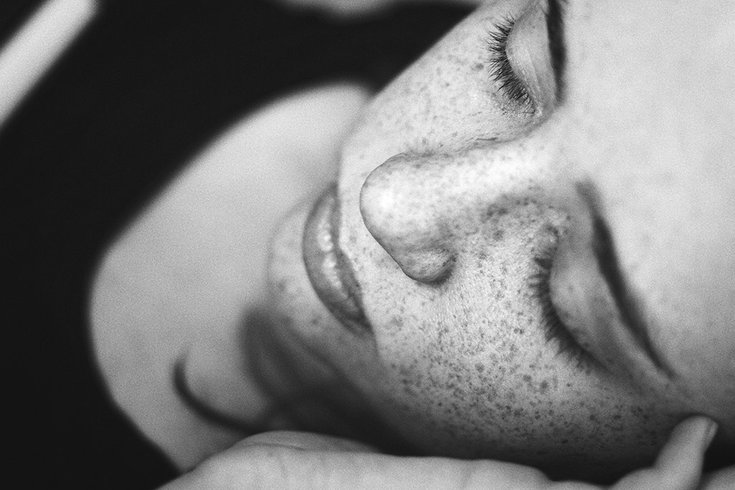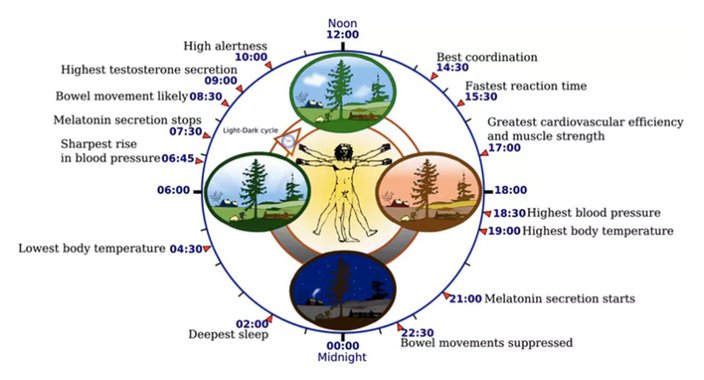
December 11, 2018
 Photo by Rodrigo Pereira/on Unsplash
Photo by Rodrigo Pereira/on Unsplash
So how do you get your circadian rhythm in rhythm? Step One: set an alarm clock – for bedtime!
Sleep is controlled by two major processes:
Sleep-wake homeostasis: This involves the accumulation of sleep-promoting neurotransmitters (adenosine) in the brain during wakefulness that promote sleep. Basically adenosine builds and builds while you’re awake until it reaches a point that tips the scale to sleep. While you sleep, the adenosine diminishes until it tips the scale to wake.
Circadian rhythm: This is regulation of the body’s internal biological clock for sleep and wake using our sleep-inducing neurotransmitter, melatonin, and light.
MORE SLEEP: Sure, you can 'Work hard. Play hard,' but 'Sleep hard,' too
Circadian rhythm is a big deal. The Nobel Prize in Medicine was recently awarded to three Americans for their work on circadian rhythm and how it governs life. The researchers also worked on the health effects associated with incongruity between our internal clock and our real schedule based on external factors, such as work schedule, extracurricular activities, jet leg, what’s good on TV – you get it. Poor sleep can increase the risk of hypertension, heart disease, obesity, glucose intolerance, depression and a number of other health risks.
Dr. Thanuja Hamilton is a board-certified sleep medicine specialist with Advocare Pulmonary & Sleep Physicians of South Jersey in Mount Laurel. She will be writing occasionally on sleep topics.
We then change our schedule to compensate – maybe getting to bed earlier or sleeping in on the weekends. This only adds to the problem. People tend to go to bed late on Friday and Saturday nights, then sleep in the next morning. Well, when Sunday night comes around, you’ve decreased that Homeostatic Sleep Drive – that urge to sleep – because you’ve overslept over the weekend. You end up with a Sunday Night Insomnia that starts your week off on the wrong foot.
So the first tip: Keep your bedtimes consistent. Set an alarm. No, not that alarm – a bedtime alarm. Everyone sets a morning alarm because we don’t want to be late to work, class, meetings, etc., but it is just as important to avoid being tardy to bed. Set an alarm 15-30 minutes before the optimal bedtime that gives you 6-9 hours of sleep depending on your needs. When that alarm goes off, it’s time to start the process to get ready for bed.
Make it a process. Have a bedtime ritual. It makes such a difference when you’re juggling so many different things. It sets off a Pavlovian response to condition you to wind down for sleep.
The bed is really only supposed to be used for two things, and they both begin with “S."
Shut off anything electronic 30 minutes before bed – the TV, computer, phone, social media pings or anything stimulating. I’ve heard many people say they can’t fall asleep without the television, but there is a difference between distraction and relaxation. The blue wavelength from your electronics are actually telling the brain to stay alert and it prevents the secretion of melatonin, which tells the brain to go to sleep. Plus, it’s just so distracting.
In my unofficial poll, I think I’m one of only 12 people in the city of Philadelphia that doesn’t have a television in the bedroom. When I’m in a hotel room and I’ve got that TV right there at the foot of my bed, I click away. It’s so tempting to watch those guilty pleasure shows when you’re cozy in bed. Once you start watching, you’ve got to see the end. If you end up falling asleep before the show is finished, it’s a clear sign that your body called mercy and sleep won. The circadian rhythm orchestrates many biological processes, including digestion, immune function and blood pressure, all of which rise and fall at specific times of day. Misregulation of the circadian rhythm can have adverse effects on metabolism, cognitive function and cardiovascular health. 
Regardless of the light or distraction, those electronics don’t belong in the bedroom. The bed is really only supposed to be used for two things, and they both begin with “S." That’s right. Sleep and sex. For those who said snacking, you don’t want crumbs in the bed, plus you should really avoid eating three hours before bed.
So set the stage. Electronics are off and lights dimmed to promote melatonin secretion. Spray that lavender or bergamot scent and play that mellow music to promote relaxation. Turn on an indirect, low fan to block out noise and cool the room ... even in the winter. You can set a timer that shuts the fan off 15 minutes before your morning alarm. This allows the room to warm up, just as our core body temperature does, prior to waking and lets the outside noises start to gently rouse you.
By keeping the room dark and cool before bed, it allows melatonin to peak while our core body temperature comes down for sleep. Light wakes us up, but it’s tough in the winter when we have it for a shorter period of time. A lightbox of at least 10,000 lux of light can be helpful at mimicking sunlight and perking you up. You want to look at it indirectly for 30-60 minutes in the morning or early afternoon for an energy boost to sustain you during the dark evenings of winter. It also helps fight that urge to doze in the cold months.
Don’t doze on the sofa. Save that good sleep for your bed ... and only during bedtime. Lastly, make your bed each morning. There’s nothing better than getting into a beautifully-made bed. It’s so inviting.
